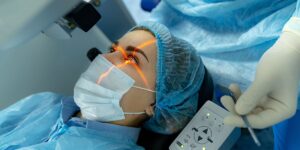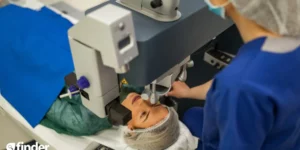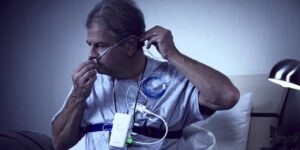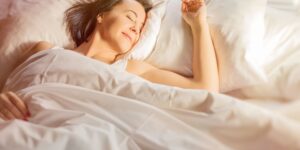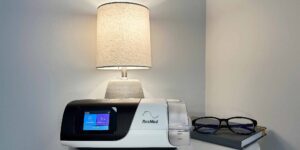Sleep apnea is common among older adults as it’s a sleep disorder that poses an increased risk to patients as they grow older. Obstructive sleep apnea patients experience worse symptoms of sleep apnea syndrome, such as diabetes and high blood pressure when left untreated for a long time.
Sleep apnea is sleep-disordered breathing caused by airway obstruction, the brain not stimulating the throat muscles needed to breathe during sleep, or a combination of both factors. Several air pressure devices and methods for treating obstructive sleep apnea require a doctor’s prescription.
Continuous positive airway pressure CPAP machines are considered the premium standard for treatment. However, outside of a continuous positive airway pressure CPAP machine, the best appliances for obstructive sleep apnea are APAP machines, EPAP valves, Oral Appliances, and implanted muscle stimulation devices. Each device has its pros, cons, and considerations, which we’ll explore in more detail below.

The best device for treating sleep apnea should be decided with the aid of your doctor, as treatment may vary depending on the nature of sleep apnea symptoms you experience and other health complications surrounding it. Learn more about natural ways to treat sleep apnea. We have decided to enlighten you with facts. So, read on to learn about the different types of sleep apnea and the best treatment devices available.
The Three Main Types of Sleep Apnea

Sleep apnea is a condition where people find it challenging to inhale and exhale regularly. As a result, people with sleep apnea may experience long pauses before breathing during sleep, and it is common for sleep apnea patients to wake up coughing, choking, or gasping for air.
The three types of sleep apnea are:
- Obstructive Sleep Apnea (OSA) is a common type of sleep apnea. Children and adults struggling with Sleep Apnea symptoms have Obstructive sleep apnea caused by airway obstruction. This condition is usually due to the relaxation of throat muscles or excessive tissue in the soft palate. Those whose tonsils have not been removed may also experience obstructive sleep apnea regularly.
- Central Sleep Apnea (CSA): Not many people are battling this type of sleep apnea. The disorder arises when the brain loses its inability to control regular breathing during sleep. People with central sleep apnea may need advanced treatment options to initiate breathing. Treatments like AVAPS BiPAP Machine will work effectively.
- Complex Sleep Apnea (CompSAS): Complex sleep apnea combines obstructive sleep apnea and central sleep apnea. People with this type of sleep apnea are diagnosed when they begin treating Obstructive SA with a CPAP, only to find it ineffective.
Unfortunately, that is the most challenging form of sleep apnea to diagnose and treat. As a result, it’s common for sleep doctors to explore a combination of effective therapies, including prescription advanced BiPAP machines and drugs to treat complex sleep apnea.
The best over-the-counter obstructive sleep apnea machines are not recommended for mild breathing and snoring issues and are not rated to treat sleep apnea. Unfortunately, people can only sell only anti-snoring devices over the counter, so it’s up to you to get a prescription solution that’s clinically proven to treat obstructive sleep apnea. The MyTAP Oral Appliance can be helpful in this regard.
Snoring and OSA are not the same things, and relying on anti-snoring devices to treat Obstructive Sleep Apnea may not bring noticeable relief from the obstructive sleep apnea symptoms.
Factors To Consider When Choosing The Right Device for Sleep Apnea Device For You
With various treatment options available for obstructive sleep apnea, it’s hard to figure out what works and what doesn’t for each specific case of mild sleep apnea. So, to help you decide, here are four essential considerations you should keep in mind in your quest to find the best device for treating sleep apnea:
Type of Sleep Apnea and Doctor’s Recommendations
Some devices work better for one type of sleep apnea than the other. Therefore, you must consult a sleep specialist and undergo a sleep study to determine which device is ideal for your case. Speaking to your primary care provider about your sleep health and concerns is also a great place to start if you haven’t already been diagnosed with obstructive sleep apnea.
Health Insurance
Most health insurance policies will cover moderate sleep apnea treatment expenses, but when dealing with insurance, ask straightforward questions and get clear answers about what is covered and what you’ll be responsible for.
Your insurance policy might favor one treatment over another and may be able to handle more of the cost of a particular type of therapy, so be sure to explore your options with them.
Comfort
Continuous Positive Airway Pressure (CPAP) machines yield the best results for people with moderate obstructive sleep apnea, but adjusting to continuous positive airway pressure (CPAP) therapy can be difficult. Many people initially experience claustrophobia, and it’s easy to become discouraged and give up on treatment before finding what works best for you.

Work with your healthcare provider to explore different mask options and comfort features your CPAP machine may offer to improve your results drastically. For example, if you feel that you’ve tried it all regarding CPAP, an oral appliance or hypoglossal nerve stimulator may offer greater comfort.
Final Words
once you have been diagnosed with mild obstructive sleep apnea, central sleep apnea, or other related sleep disorders, the best thing is to ask your sleep specialist about which treatment you should consider.
Untreated sleep apnea may result in severe health complications. Meanwhile, severe sleep apnea comes with several risk factors, such as daytime sleepiness and nonalcoholic fatty liver disease, and affects your overall health.
When the situation worsens, it is your doctor’s discretion to suggest a sleep study or a suitable device to treat your severe obstructive sleep apnea. Mind you; not all therapies will help you to fall asleep at the initial stage. In addition, to overcome your sleep disorder, you may need to be consistent with your sleep apnea treatment.
From the expert’s point of view, we recommend that you understand the proper use of any treatment recommended and adhere strictly to your medications to aid in quick recovery and enjoy a healthier lifestyle.





